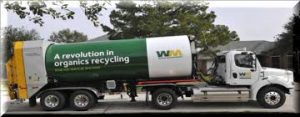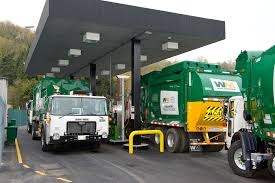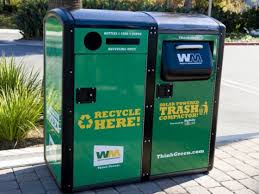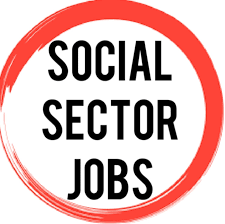
There could not have been a better prologue to this piece than this quote from the reporting entity, Waste Management Inc., Texas, “It’s often said that waste is simply a resource out of place. That’s the idea behind investments we have made in the last decade in companies focused on transforming certain materials in the waste stream into materials of higher value. As these relationships have matured, we have already begun to see opportunities to increase our environmental impact through expanding into broader markets”.
From plastic pollution to e- waste; from solid waste to waste water, many cities in developing economies like Africa struggle to keep their environment free from filth and pollution. The challenges of environmental sanitation in Africa, and other developing climes may continue to overwhelm them except their governments and their entrepreneurs begin to think in line with the above quote from Waste Management Inc. For as long as waste is only seen as a nuisance to be discarded into landfills, and sometimes dumped into Canals and Rivers, the net economic effect would remain negative – an outflow of economic resources. This paradigm shift in waste management – from absolute nuisance to potential economic benefits – is a necessary shift in the interest of environmental stewardship and sustainable development. While this paradigm shift is necessary, it is however not accidental. As the President and CEO of Waste Management Inc., Jim Fish puts it, “the world is changing more rapidly than ever. To sustain and succeed in the face of this change requires agility, adaptability and, above all, a resilient spirit. We see these qualities tested and proven countless times daily by our employees who manage the environmental needs of our customers”. Truly, agility, adaptability and resilience are indispensible in driving this change. From deployment of new technologies to fleet management, from creative thinking to ingenious process inventions, smart customer service and measurable KPIs, it is nothing traditional.
The 2018 sustainability report by Waste Management Inc., bears testimony of how a 21st century waste manager is uncovering huge wealth amidst dirt; a story of how everyday waste is transformed to address most pressing human needs: from cleaner energy to reduced carbon emission, job creation, wealth creation and eco-efficiency, while at the same time, maintaining cleaner and healthier cities – little wonder this waste manager posted a total revenue of $14.5B for FY2018. Some of the innovations are presented here below:
- CORe®

This Waste Management’s organic recycling process converts food waste into EBS®, an organic slurry product used to generate green energy. With CORe®, WM collects commercial food waste from restaurants, schools, food processing plants and grocery stores; screen it to remove contaminants such as plastic, packaging and bones, and blend the waste into an engineered slurry that has a consistency like cooked oatmeal. The slurry dramatically increases the production of biogas in anaerobic digesters, which is used to create renewable energy. Through CORE, Waste Management (WM) has achieved between 50 – 100% increase in renewable biogas production with as little as 10% EBS® volume addition. As at August 2018, WM Inc. had produced about 15.4 million gallons of EBS which were converted to biogas to produce enough renewable energy to power over 1,350 homes.
- From Trash to Power
As trash decomposes it produces gas, which is roughly half carbon dioxide and half methane. At Waste Management’s Landfill Gas To-Energy (LFGTE) facilities, this methane is captured and used beneficially as an alternative to fossil fuel to power homes and provide fuel for industrial uses and commercial vehicles, including WM’s fleet. Today, Waste Management is the largest LFGTE developer and operator in North America, with projects generating the equivalent of nearly 4.5 million megawatt-hours per year, enough energy to power 460,000 homes, or the equivalent of replacing nearly 2.5 million tons of coal annually.
- Renewable Natural Gas Power
 Beyond electricity generation, Waste Management Inc. is also a leader in converting landfill gas into natural gas fuels that are distributed for use in residences, businesses and transportation. Renewable natural gas (RNG) produced from processed landfill gas now fuels over 33 percent of natural gas trucks in her fleet.
Beyond electricity generation, Waste Management Inc. is also a leader in converting landfill gas into natural gas fuels that are distributed for use in residences, businesses and transportation. Renewable natural gas (RNG) produced from processed landfill gas now fuels over 33 percent of natural gas trucks in her fleet.
- Enerkem
The Enerkem plant, another initiative from WM Inc., converts non-recyclable municipal solid waste (MSW) into biofuels for transportation and renewable chemicals used in everyday products. Enerkem Alberta Biofuels is the world’s first commercial biorefinery to use MSW to produce methanol and ethanol. This facility in Edmonton, Canada, began producing methanol from waste in 2015 and has now initiated ethanol production. The potential annual output of the facility is 10 million gallons.
- Bigbelly
 Funny as the name sounds, this smart waste collection system is making refuse collection fun and attractive. Since 2009, Waste Management has been an investor in Bigbelly — the world’s leading smart waste and recycling system. Deployed in communities, campuses and organizations in over 50 countries and all 50 U.S. states, Bigbelly transforms waste operations and drives efficiencies with a smart, connected system. Solar panels on high-capacity cans harvest energy for compaction and communication. Each can holds 150 gallons, five times that of the average receptacle, because waste contents are compressed as the container fills. Bigbelly enables visibly sustainable operations, measurable recycling and contained waste for cleaner public spaces.
Funny as the name sounds, this smart waste collection system is making refuse collection fun and attractive. Since 2009, Waste Management has been an investor in Bigbelly — the world’s leading smart waste and recycling system. Deployed in communities, campuses and organizations in over 50 countries and all 50 U.S. states, Bigbelly transforms waste operations and drives efficiencies with a smart, connected system. Solar panels on high-capacity cans harvest energy for compaction and communication. Each can holds 150 gallons, five times that of the average receptacle, because waste contents are compressed as the container fills. Bigbelly enables visibly sustainable operations, measurable recycling and contained waste for cleaner public spaces.
The catalyst behind these innovations is recycling. When asked, ‘why are you recycling’, WM submits:
- To save 117.8 million mature trees
- To fulfil the annual power needs of 1.59 million homes
- To avoid 32.5 million metric tons of GHG emissions
- To supply enough fresh water for 28.1 million people for a month
- To meet the annual municipal waste needs of 27.9 million people
- To save 63.2 billion gallons of water
- To conserve 17.4 billion kWh of electricity
- To preserve enough timber resources to produce 2 trillion sheets of printing and copy paper
- To save 24.5 million cubic yards of landfill space
Commenting on the trailblazing initiatives, the company further remarks, “We concentrate on initiatives that enhance our environment, promote education and improve the liveability of our communities”. WM’s focus areas include:
- Projects that reduce environmental impacts, including beautification and litter control efforts
- Providing environmental education and outreach
- Support of wildlife preservation efforts
- Support of safe neighbourhood programs
- Support of a variety of charitable giving projects.
In all ramifications Waste Management Inc., has demonstrated outstanding performance, delivering in both her economic and social functions. In the economic functions, the company has continued to take the lead in supplying her markets with eco-efficient products and services which meet the everyday needs of her customers and the society at large. Investors were not left out in the economic functions as the company, in the year under review, returned a total of $1.5B to shareholders. Similarly, in her social functions, Waste Management Inc. continues to dispense positive social impact through her various community give-back projects, while remaining a champion in environmental stewardship and resource conservation. In the year under review, the company donated a total of $17.2M in charitable giving and yet another $1.9M in-kind services.
Full report can be downloaded here: https://bit.ly/2VeqKi5.
Awards
- World’s Most Ethical Companies: The Ethisphere Institute 11 of the past 12 years
- 100 Best Corporate Citizens: Corporate Social Responsibility Magazine 2015-2018
- Green Fleet Leadership Award: Chicago Area Clean Cities Coalition, 2017
- Ecovadis: Silver (2017), Bronze (2016, 2018)
- CDP (formerly Carbon Disclosure Project): Reporting since 2004
- CDP A-List: 2016 and 2017 Dow Jones Sustainability Index S&P 500 Commercial Services & Supplies Sector Leader: 2018
- Climate Disclosure Leadership Index: 11 consecutive years
- DJSI North American and/or World Indices: 13 of the past 16 years
Other Achievements
- 6,535 alternative fuel vehicles
- 107 natural gas fuelling stations
- 127 Landfill Gas-To-Electricity facilities
- 90 wildlife habitat programs
- 38 pollinator programs
- 20K acres of certified habitats
- 20 million entities served
- 11 construction and demolition recycling facilities
- 4 CORe® facilities
- 2 dual stream recycling facilities
- 29 commercial/ paper only recycling facilities
- 40 composting/chipping/ grinding facilities
- 44 single-stream recycling facilities
ABOUT THE COMPANY
Waste Management Inc. (NYSE: WM), founded 1971 in Houston, Texas, is the leading provider of comprehensive waste management environmental services in North America, with a staff strength of about 42,300 employees.
The CSR Arena as a platform for socially responsible corporate citizens. What is your social impact, CSR or sustainability story? Reach us by email: thecsrarena@gmail.com. Follow us on Twitter:@thecsrarena.

The CSR Arena is a CSR advocacy and sustainability-reporting-analysis champion. We encourage and celebrate effective CSR and positive social impact by responsible corporate citizens; we celebrate international best practices in sustainability reporting across different economic divides. Our goal is to realize the dream of development scholars that, ‘corporates, more than governments, would bring about the much needed sustainable development across the globe. We partner with FBOs, NGOs, CBOs, governments and corporates to spread the message of sustainable development and corporate sustainability. Our platforms bear tales of good corporate citizenship – grab the microphone that you may be heard. Contact: news@thecsrarena.com



